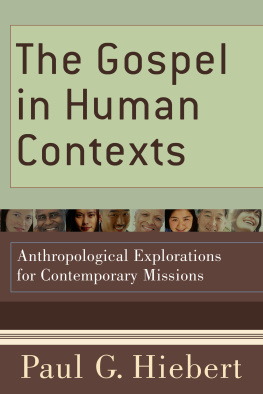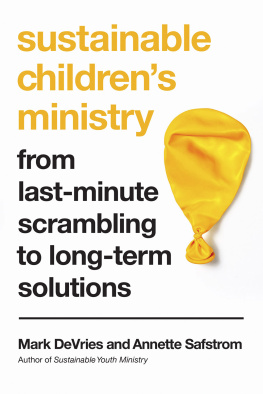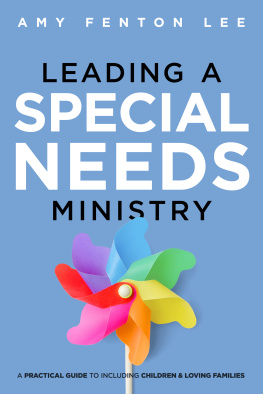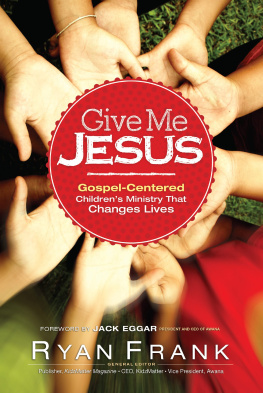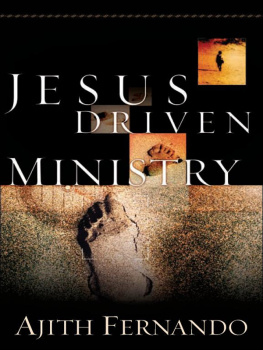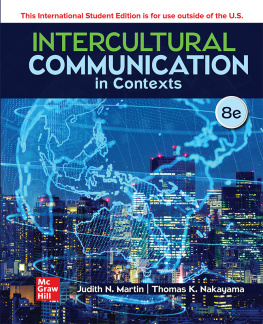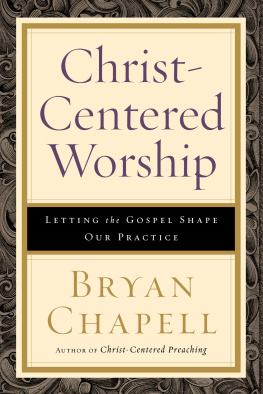2009 by Paul G. Hiebert
Published by Baker Academic
a division of Baker Publishing Group
P.O. Box 6287, Grand Rapids, MI 49516-6287
www.bakeracademic.com
Ebook edition created 2016
Ebook corrections 11.17.2016, 03.11.2021
All rights reserved. No part of this publication may be reproduced, stored in a retrieval system, or transmitted in any form or by any meansfor example, electronic, photocopy, recordingwithout the prior written permission of the publisher. The only exception is brief quotations in printed reviews.
Library of Congress Cataloging-in-Publication Data is on file at the Library of Congress, Washington, DC.
ISBN 978-1-4412-1131-6
Scripture quotations labeled Message are from THE MESSAGE. Copyright by Eugene H. Peterson 1993, 1994, 1995, 1996, 2000, 2001, 2002. Used by permission of NavPress. All rights reserved. Represented by Tyndale House Publishers, Inc.
Scripture quotations labeled NIV are from the Holy Bible, New International Version. NIV. Copyright 1973, 1978, 1984 by Biblica, Inc. Used by permission of Zondervan. All rights reserved worldwide. www.zondervan.com
Scripture quotations labeled NRSV are from the New Revised Standard Version of the Bible, copyright 1989, by the Division of Christian Education of the National Council of the Churches of Christ in the United States of America. Used by permission. All rights reserved.
Scripture quotations labeled RSV are from the Revised Standard Version of the Bible, copyright 1952 [2nd edition, 1971] by the Division of Christian Education of the National Council of the Churches of Christ in the United States of America. Used by permission. All rights reserved.
Contents
In the last days of his life, my father scrambled to finish two book manuscripts before mesothelioma, an asbestos-related cancer, claimed his life on this earth in favor of a heavenly walk with my mother and his Lord. (He was looking forward to it.) Trouble with his memory was making it difficult to remember what he had already written, and a continual flow of phone calls and visits from loving family and faithful friends prevented him from accomplishing the task. Fortunately, one of the manuscripts, now in print with Baker Academic under the title Transforming Worldviews, was nearly finished apart from the editing, which was ably done by Jeremy Cunningham. The other, this one, was a collection of pieces, some already in print and some written for the occasion. It was intended to be a summary of Dads thinking about anthropology and missions over the fifty-plus years of his service. A number of us participated in pulling the pieces together. Special mention goes to Linda Hytha, who carefully read and edited the entire manuscript (Emily Davis was her assistant); to Jeffery Wittung, who managed its production; and especially to Jim Kinney, who worked out flexible arrangements with Baker for its publication. My job was to clarify the writing and to watch for duplication, some of which was inevitable in a summary volume such as this one. Every effort was made to put the book into print as Dad intended. Where I have failed at that, I will apologize directly to the author when I myself take that heavenly walk.
Eloise Hiebert Meneses
St. Davids, Pennsylvania
May 27, 2008
The Christmas pageant had come to a good end after a rocky start, I thought. There were scenes of the angel addressing Elizabeth, Mary, and Joseph, of Elizabeths meeting with Mary, and of the birth of Christ. Then the shepherds came on stage, staggering in drunk (in South India shepherds and drunkards are synonymous), followed by a dozen sheep bouncing on all fours and butting one another (all the young children who had no other roles in the play). When the angels of the Lord appeared, they all kneeled, sober and reverent. There were the wise men following the star and, finally, the manger scene as all gathered around the newborn child. The message had gotten through!
Then from behind the curtain leaped Santa Claus, giving gifts to all, the hero of the evening. I was stunned. My first reaction was Syncretism!a mix of Christian and Hindu beliefs. Then I remembered that the missionaries from the West had brought Santa along with Christ. In the West, we have two Christmases. The sacred Christmas centers on the baby Jesus, Mary, Joseph, angels, shepherds, and wise men. It takes place in a warm climate, has palm trees and other tropical plants, sheep, cows and camels, angels, and the star of Bethlehem. The secular Christmas focuses on Santa Claus and elves. It takes place in a cold climate and has evergreen trees, reindeer, sleighs, and the star of the North. We mentally keep the two separate, although we do bring evergreen Christmas trees into the church and mix the two at home. Indian villagers have no supernatural/natural dichotomy and see all these participants as parts of one whole picture. The cultural differences between the missionaries and the villagers had led to a fundamental miscommunication.
As missionaries, pastors, and evangelists, we are involved in complex ministries. To prepare for these, we seek extensive training in Bible schools and seminaries. There, most of the courses focus on exegesis of the Scriptures. Systematic and biblical theologies are at the fore. This training is essential because those who are ministers of the gospel must know it well in order to communicate it effectively. Church history helps us understand the ways Christians have understood the gospel since New Testament times. And we take a few courses on preaching and counseling (Western style). But when we go out in missions, we find that just knowing the gospel in its original context is not enough. We must communicate that gospel to humans who live their everyday lives in worlds far different from our own. Unfortunately we receive little training in the exegesis of human beings and their contexts. At best we may have taken a course on how to learn a new language. Consequently, the gospel we preach goes off into space and does not reach the people we serve (fig. 1).
FIGURE 1
Bridging the Culture Gap
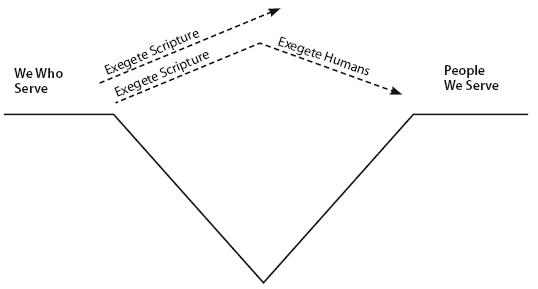
How should we, as missionaries, pastors, and church workers, prepare for our ministries? It is increasingly clear that we must master the skill of human exegesis as well as biblical exegesis to meaningfully communicate the gospel in human contexts. We need to study the social, cultural, psychological, and ecological systems in which humans live in order to communicate the gospel in ways the people we serve understand and believe. Requiring only a course or two on human exegesis is like preparing a doctor by teaching him to put on Band-Aids, stitch wounds, and administer artificial resuscitation. Christian missions and ministries are as complex as medicine and open heart surgery, and, consequently, they require a deep understanding of humans to be effective.
Not only must missionaries and ministers learn how to exegete humans, they must also know how to put the gospel into human contexts so that it is understood properly but does not become captive to these contexts. The gospel is not simply information to be added to current cultural understandings. It is a transforming power that changes individuals and societies into signs and witnesses of the kingdom of God. Moreover we must learn to exegete our own contexts, because these shape the way we understand and communicate the gospel. We often speak of this encounter between gospel and human contexts as indigenization or contextualization.
In this book we look at ways of exegeting human contexts and of communicating the gospel faithfully in these contexts. We argue that this process of communicating the gospel in human settings is a third way of practicing theology, parallel and complementary to systematic and biblical theologies. This third way we call missional theology.
Next page
